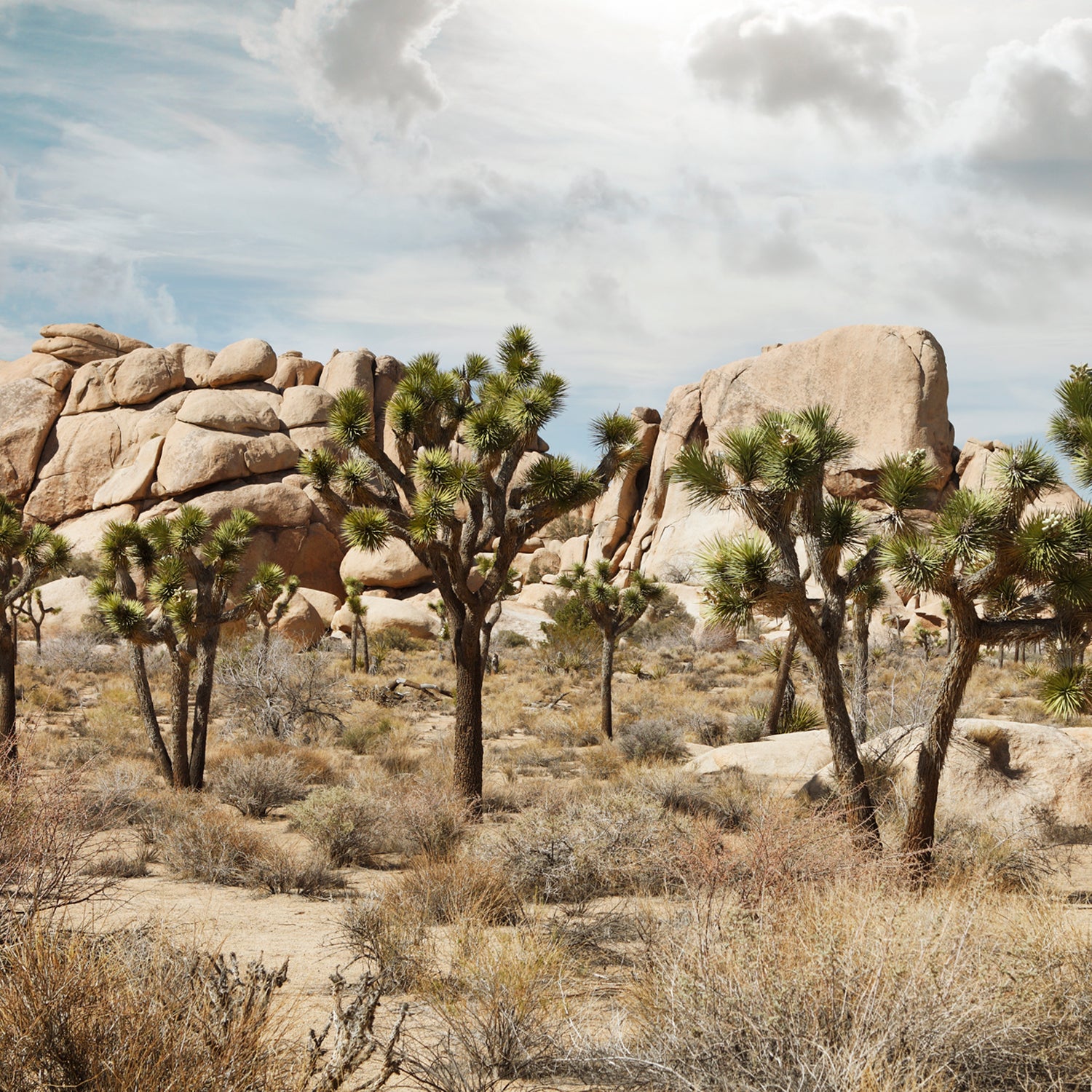Last fall, petitioned the U.S. Fish and Wildlife Service to add the iconic Joshua tree—a spindly, long-living succulent in the Southwest—to the endangered species list. If the service agrees, it will be the first time a species gets protection as a direct result of the impact of climate change. (In 2008, the FWS agreed to designate the polar bear threatened but not endangered.) This would mean that factors contributing to climate change, like fossil-fuel extraction, could become highly regulated near the park. “It could be a game changer,” says WildEarth’s Taylor Jones.
Most models predict Joshua tree habitat loss of 90 percent within the next 50 to 100 years due to climate-change-fueled drought. And just because 14 percent of Joshua trees reside in national parks doesn’t mean they’re somehow less vulnerable. “Climate change knows no borders, and some studies found that their habitat might be some of the hardest hit going forward,” says Jones. Fish and Wildlife is expected to issue an opinion soon, but activists say that they will continue the fight even if the tree isn’t designated—they’ve also submitted a similar proposal for two cold-dependent insects in Glacier National Park.


